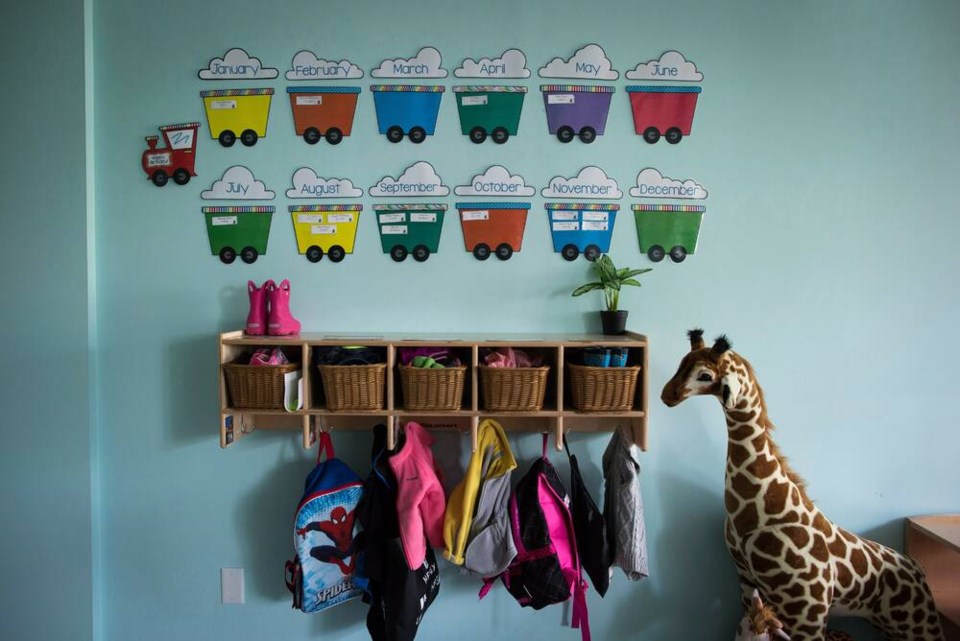“I jump through the flaming hoops of death and I’m beyond frustrated.” This is one B.C. child care provider’s description of the circus the government is running as regards administration of child care.
B.C. parents looking forward to $10-a-day child care shortly are in for disappointment. Provincial mismanagement of child care and disrespect for child care operators has been going on for years and it has hit a boiling point.
Government mismanagement was the overwhelming theme at a virtual roundtable to listen to child care providers hosted by MLA Karin Kirkpatrick, Liberal critic for education, children, family development and child care on March 22. Child care providers shared their concerns, some choking back tears.
It’s been in the news already that the B.C. government missed a recent deadline to provide subsidies to providers. This compels providers to ask parents to cover the additional costs on short notice and is just the latest example of what child care providers experience.
One provider in the Okanagan spoke to staffing issues going back years.
“We don’t have a labour shortage in child care,” he said. “We have no problem finding good quality candidates. We have a problem finding certificates.”
In other words, providers find candidates, but the province won’t certify them. This pre-dates COVID and points to the idea that a wage grid with higher salaries may not be the solution for attracting and retaining staff if government approval of existing, willing candidates moves at a glacial pace.
Another provider says she paid B.C.’s Early Childhood Educator Wage Enhancement out of her own pocket because she didn’t want her staff to go without it while waiting for the province to hand out funds announced in the fall. She says government has downgraded expectations, noting “it’s no longer $10-a-day daycare, it’s an average of $20 dollars a day.”
One 25-year veteran of child care provision at a not-for-profit centre in a targeted, low-income area said her situation is so bad she’s at risk of losing everything.
“I’m in my 50s and I’m on my way out. I don’t think there are many more who will do this work.” Hers is the very type of care governments have expressed interest in supporting, theoretically at least. Another operator affirmed that the barriers are the same between her for-profit and not-for-profit centres.
One provider in Victoria expressed frustration with government rhetoric. She’s on the brink of quitting, which adds irony to announcements of 50 new spaces. “They [the government] are proud to add 50 spaces, but they are about to lose 200,” she said, adding: “This is not the way I wanted to go out.”
Most of these operators are women entrepreneurs, and the irony of nurturing women in business is not lost on them as the government effectively shuts them down.
Child care costs are rising steeply — heating costs alone doubled this past winter, said one provider. Complexity and cost go hand in hand in child care provision, as think-tank Cardus learned in doing a detailed cost assessment of the real costs of a national daycare plan. Staff-to-child ratios, maintenance, capital, insurance, programs, cleaning — it’s all a delicate balance, with costs changing based on location and other factors.
“The government process shows that the province doesn’t understand basic economics,” said one provider. “If the province was a private business they would be out of business.”
Existing research and studies of the Quebec child care experience serve as a warning. The very real risks in managing a provincial system include inadequate supply and poor-quality care, both of which Quebec experiences. Reducing parent fees to $10 a-day should be an easy early win, but the latest failure to review grant applications and deliver funds to providers on time calls into the question the province’s ability to keep promises.
Times are painful for professional child care providers in B.C., but it’s families who will lose out from a big, bureaucratic system that’s long on promises and short on delivery.
Parents should be clamoring for direct funding so that they can subsidize the kind of care that works best for them. This approach is also far less clunky for child care providers who don’t have to go through government bureaucracy. Child care is the care of a child, no matter who does it.
This definition is the most equitable and inclusive way to approach family needs, instead of government picking winners and losers.


